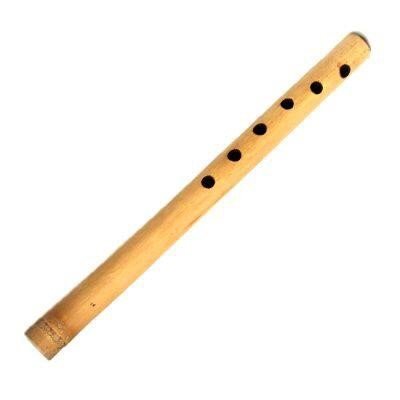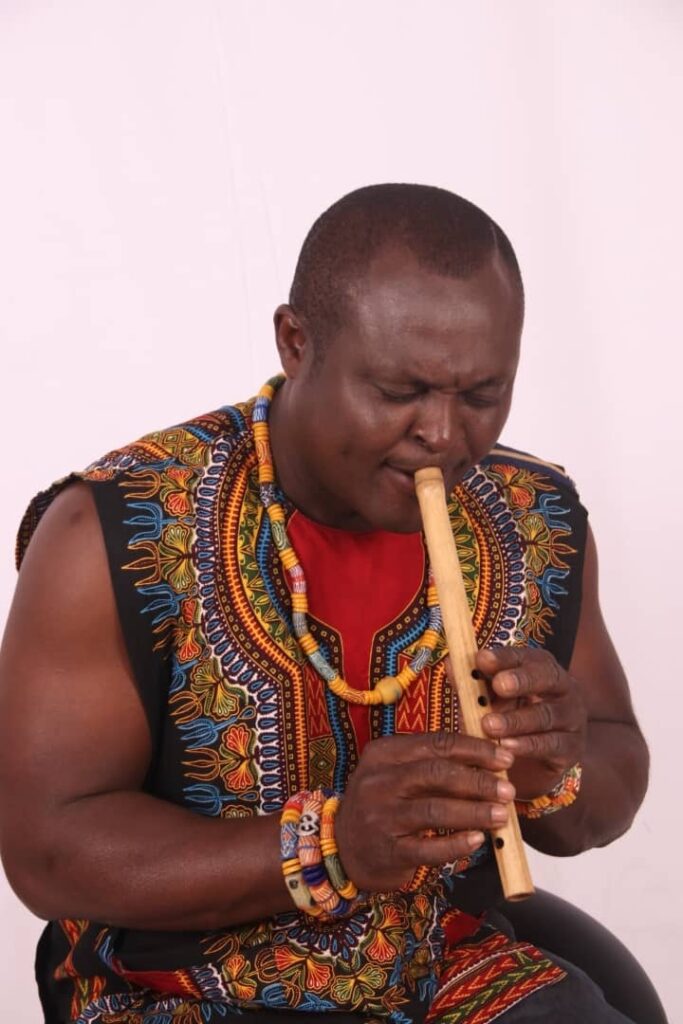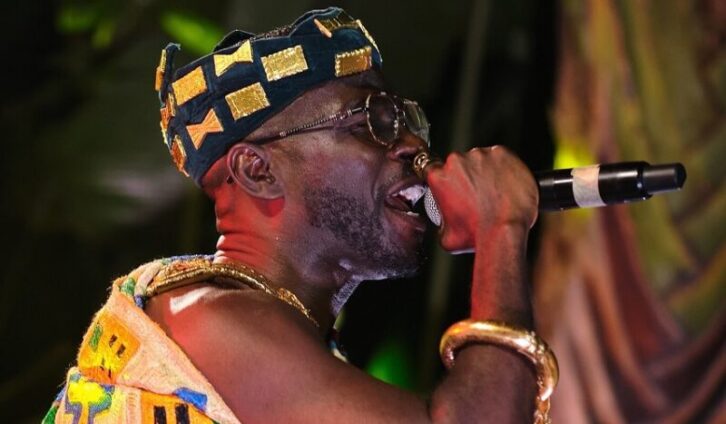Celebrated Ghanaian musician, Okyeame Kwame, may ditch rap in his old age and rather grab the bamboo flute, popularly known as atentenben in Ghana.
Realising the fact that rap requires more energy, Okyeame Kwame fears he might not be able to actively do rap when he is older, so he is currently learning how to play the flute.
Speaking to Quophi Okyeame on his '30 Questions' show, Okyeame Kwame revealed that he has been learning this new skill for the past four months.
"Currently, I picked up a flute - atentenben, and I have been playing it for maybe four months and I am learning to play atentenben because very soon I will be old and weak and I still want to do music. Rap is tough on the bones. I want to be able to sit down and collect money from the Europeans and play it to them.
I will add a little drama, women with big 'nyash' in rafias and kente and create a certain persona and all that I am doing is to play the atentenben to them," he quipped.
Okyeame Kwame, has matured in the music space over the years. He has grown from being a rapper to a musician who understands the rudiments of music and applies them in his compositions. After going solo, he has become more melodic even in his rap delivery, merging singing with spoken word.
His new journey of learning how to play a musical instrument (atentenben) is likely to win him a lot of spurs and cement his artistry in the music industry as one of the consummate musicians Ghana has produced.
Okyeame Kwame, has achieved remarkable feats in the music industry as he has distinguished himself from his peers with a brand that resonates with discerning music lovers.
He has songs such as 'Woara', 'Woso', 'Anaa', 'Made in Ghana', 'No Competition', among others.
About atentenben
The atenteben is a bamboo flute from Ghana which can be played diatonically or chromatically.
Although originally used as a traditional instrument (most often in funeral processions), beginning in the 20th century, it has also been used in contemporary and classical music. Several players have attained high levels of virtuosity and are able to play Western as well as African music on the instrument.

The instrument originates from Tweneduruase in the Kwahu Plateau of south-central Ghana. It was first popularized throughout the nation by the Ghanaian musicologist Ephraim Amu. It was also featured in the Pan-African Orchestra led by Nana Danso Abiam, and Dela Botri, a former member of the Orchestra, is among Ghana's foremost exponents of the instrument. Since 2004, Botri has combined the atenteben with hiplife music on his recordings.

The atenteben flute is one of the most versatile musical instruments found in Ghana. The modern atenteben flute, built in B flat and C, was developed by the musicologist, composer and flautist Ephraim Amu (1899-1995), whose pioneering work established a notated musical tradition for the instrument and included the instrument into the curriculum of major educational institutions in Ghana, notably, the Achimota Secondary School and University of Ghana.
Latest Stories
-
Pyramids grab late equaliser in African Champions League final
20 minutes -
EU calls for ‘respect’ after Trump threatens 50% tariffs
21 minutes -
Ronaldo ‘could play’ in Club World Cup – Infantino
25 minutes -
Amorim tells Garnacho he can leave Man Utd
30 minutes -
Djokovic makes more history with 100th singles title
33 minutes -
Ten Hag set to replace Alonso as Leverkusen manager
37 minutes -
Salis’ Sunderland secure Premier League return
44 minutes -
Assin Fosu chiefs and elders bless TGMA Unsung Artiste of The Year, Yaw Darling
2 hours -
Middle-aged, 2 children trapped in their home after a fig tree sealed their frontage doors
2 hours -
Roots of resistance: The climate cost of cutting Accra’s trees
2 hours -
Reimagining Informality: Harnessing the Urban potential of street vending in Ghana
3 hours -
Former Yendi MP Dr Farouk Mahama donates towards funeral of late Mion chief
3 hours -
Ghana Gas board pledges accountability and staff support during operational tour
3 hours -
Burkina Faso’s uprising is a rebirth, not rebellion – Ras Mubarak
3 hours -
Democracy must deliver dignity and independence, not just regular elections – Ras Mubarak
4 hours

